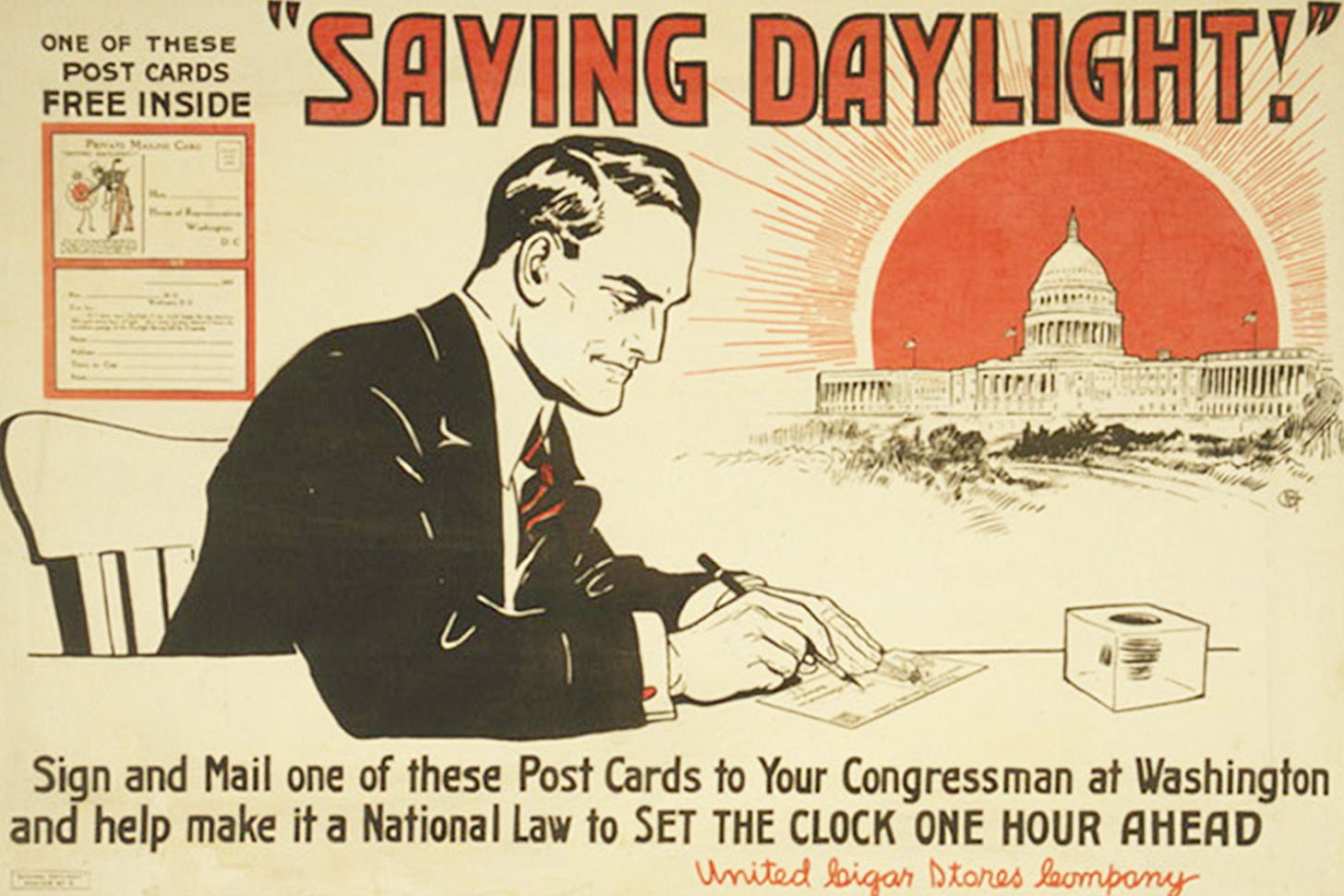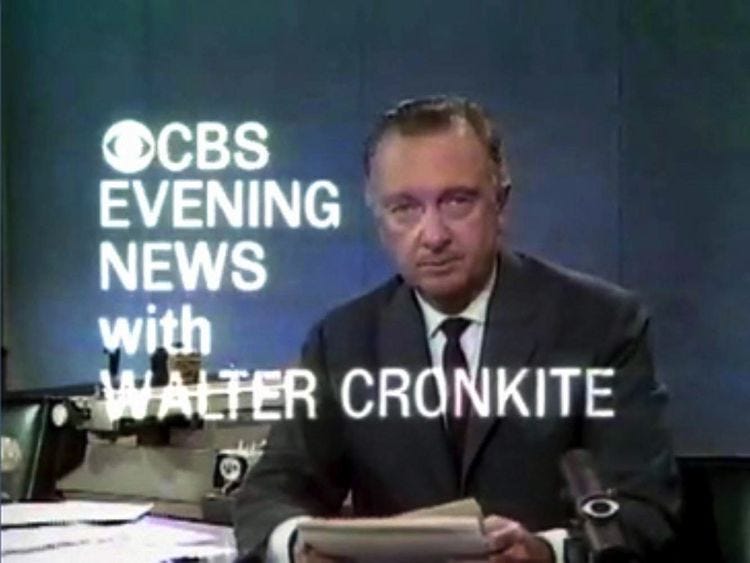It's time to dump Railway Time and War Time and go Local Time
Time zones are anachronistic, unhealthy and unnecessary in this modern world.
It’s that time of year when I remind people that time used to be local. When the sun was at its highest point in the sky, it would be declared noon, and everyone would go to lunch. The clock on City Hall would be set to this local noon and everyone with a watch would set it to match.
This was a good thing. Our bodies have circadian rhythms, which were in tune with the sun; according to the International Well Building Institute, “Circadian rhythm is a 24-hour pattern that is found in all life, generally mediated by a central clock… Considering life on earth evolved with the predictable solar cycle, it makes sense that light would be our primary tool to synchronize these circadian clocks.”
One would think that the needs of our bodies to have their circadian clocks align with the sun would be a major concern; after all, researchers have found that a disrupted circadian rhythm can cause “an increased chance of cardiovascular events, obesity, and a correlation with neurological problems like depression and bipolar disorder.” Dr Michael Antle of the University of Calgary is quoted in a press release:
“Humans live by three clocks. These include the light clock, or, solar clock, and the body clock, with the circadian system in our brains. Third is the social clock, governed by the demands of work, school, and other social responsibilities and activities. While our circadian clock is meant to follow the solar day, society dictates that we follow the social clock. 'The problem is that our social clock and our circadian clock are often in conflict,' says Antle. 'When your boss tells you to be at work before your body clock says you should be, that leads to be something we call social jet lag."
But in 1853, two trains collided in Rhode Island, killing 14 people, which was blamed on the lack of a standard time. According to Peter Galison of Harvard University,
“After that, railroad time was mandated along the region’s tracks. From there, the synchronization of time spread. People and businesses relying on trains became tired of needing to keep track of both local time and railway time. “Towns started to say, ‘We don’t want 10:56 as town time and 11 a.m. as railway time, so let’s just use railway time,” Galison said.
Canadian engineer Sandford Fleming tried to solve this problem for everyone by dividing the world into 24 time zones, with what he called “cosmopolitan time,” the same for everyone in the world, and “local time” in each time zone. He even designed special watches that could track both. Everyone thought this was far too complicated but liked the idea of time zones. Fleming also wanted 24-hour time because he missed a train in Ireland by showing up at 6 PM instead of 6 AM (I have done this too, showing up 12 hours early for a flight) He lost that argument too, but his idea of worldwide time zones caught on.
And our bodies have had to adjust to this mess ever since. Look at the Eastern Time Zone; In the farthest east I have been in it, Portland Maine, sunset today is 5:39. In the farthest west I have been, Holland Michigan, the sun sets at 6:43. In Portland, people are going home from work in the dark; in Holland, it’s light. In both places, people’s circadian clocks are out of sync with the clocks on the wall. Yet they probably have dinner and put their kids to bed at the same time, even though there is a 64 minute spread.
We got Daylight Savings time because businesses thought that it would give them an extra hour of sales; the biggest promoter was the United Cigar Stores chain, which thought it would sell more smokes. Talk about an anachronism! Today, there is no reason that we shouldn’t be listening to our body clocks instead of sticking to Railway Time, or War Time, as Daylight Savings was originally called, or I suppose we could call it Smoking Time.
This all used to make some sense when banks opened at 10 and closed at 3 and everyone raced to catch the 5:39 train to be home for Walter Cronkite after working from 9 to 5.
But now, our TV streams on demand, many people are working from home mostly on their own schedules, and online banking and shopping have made opening and closing times meaningless. It’s a modern world where we run on Internet Time and join meetings all over the world, yet our bodies still want to tune into the sun.
That’s why it’s time to plant a stick in front of City Hall and declare Toronto Time or Portland Time, or Paris Time, and schedule events in one Universal Time, or as Fleming called it, Cosmic Time, for the entire world. Our smartwatches can figure it out and show us both.
Whenever I have proposed this before, people have said I was nuts, and that it was too complicated. They said this to Sandford Fleming too; we will give him the last word.
“The intelligence of the people will not fail to discover, before long, that the adoption of correct principles of time-reckoning will in no way change or seriously affect the habits they have been accustomed to… It is to be expected that this change will at first create some bewilderment, and that it will be somewhat difficult to be understood by the masses. The causes for such a change to many will appear insufficient or fanciful. In a few years, however, this feeling must pass away and the advantages to be gained will become so manifest that I do not doubt Cosmic or Univeral Time will eventually commend itself to general favour and be adopted in all the affairs of life."






I think you grossly underestimate the flexibility of the human biological clock. However, I would get rid of daylight savings time.
I just love it. So presumably a non-starter. I'm way over-fond of simple clarity.